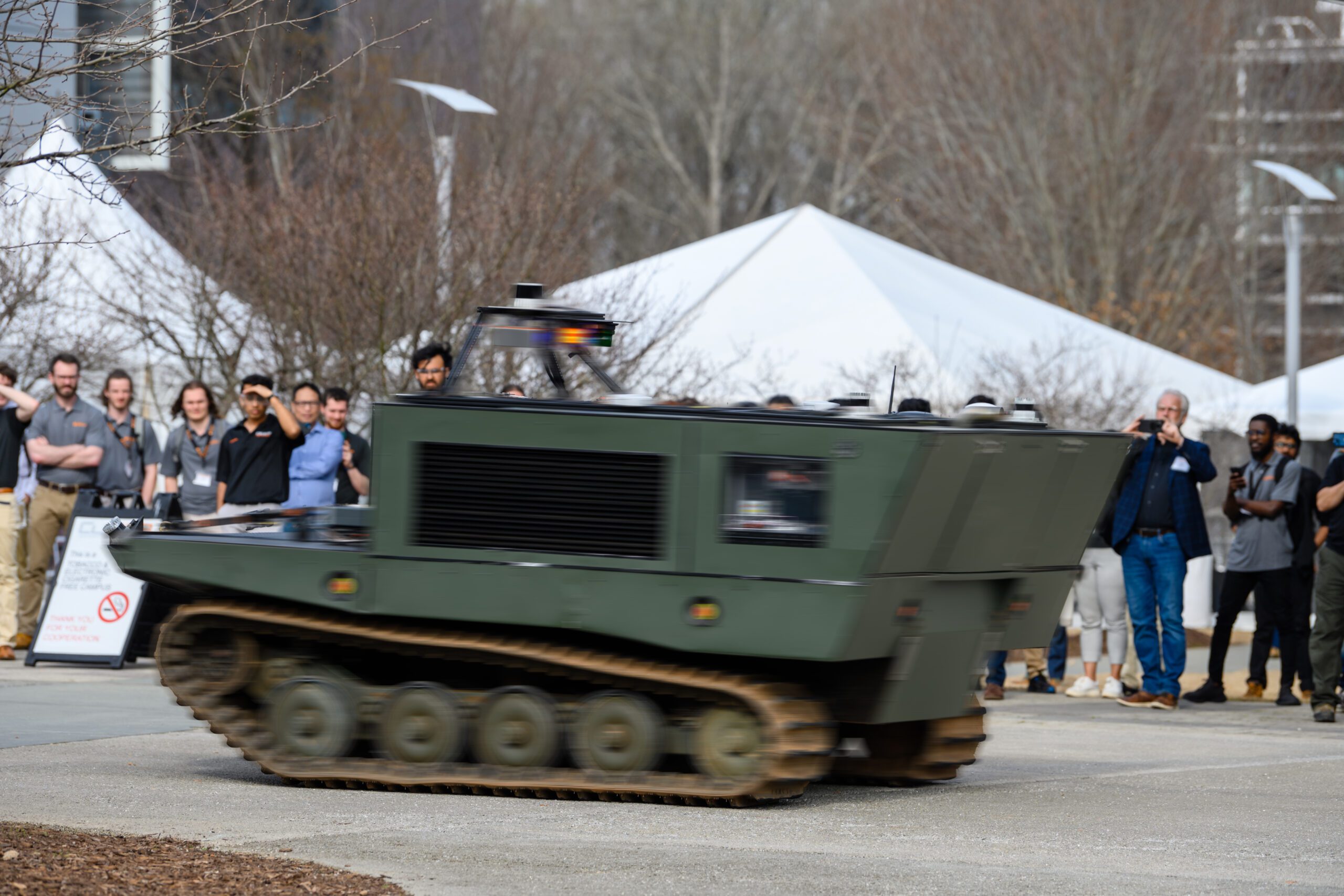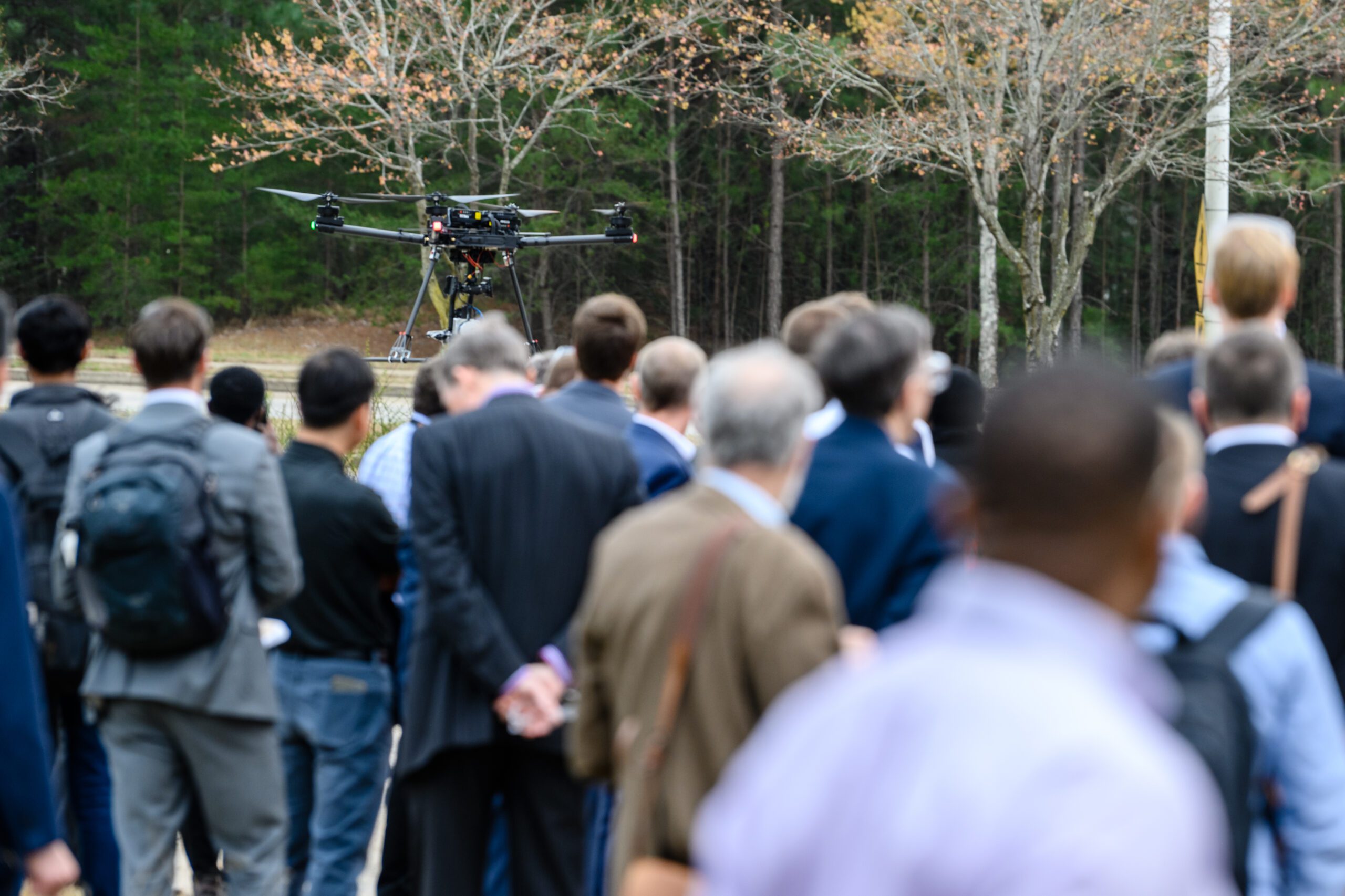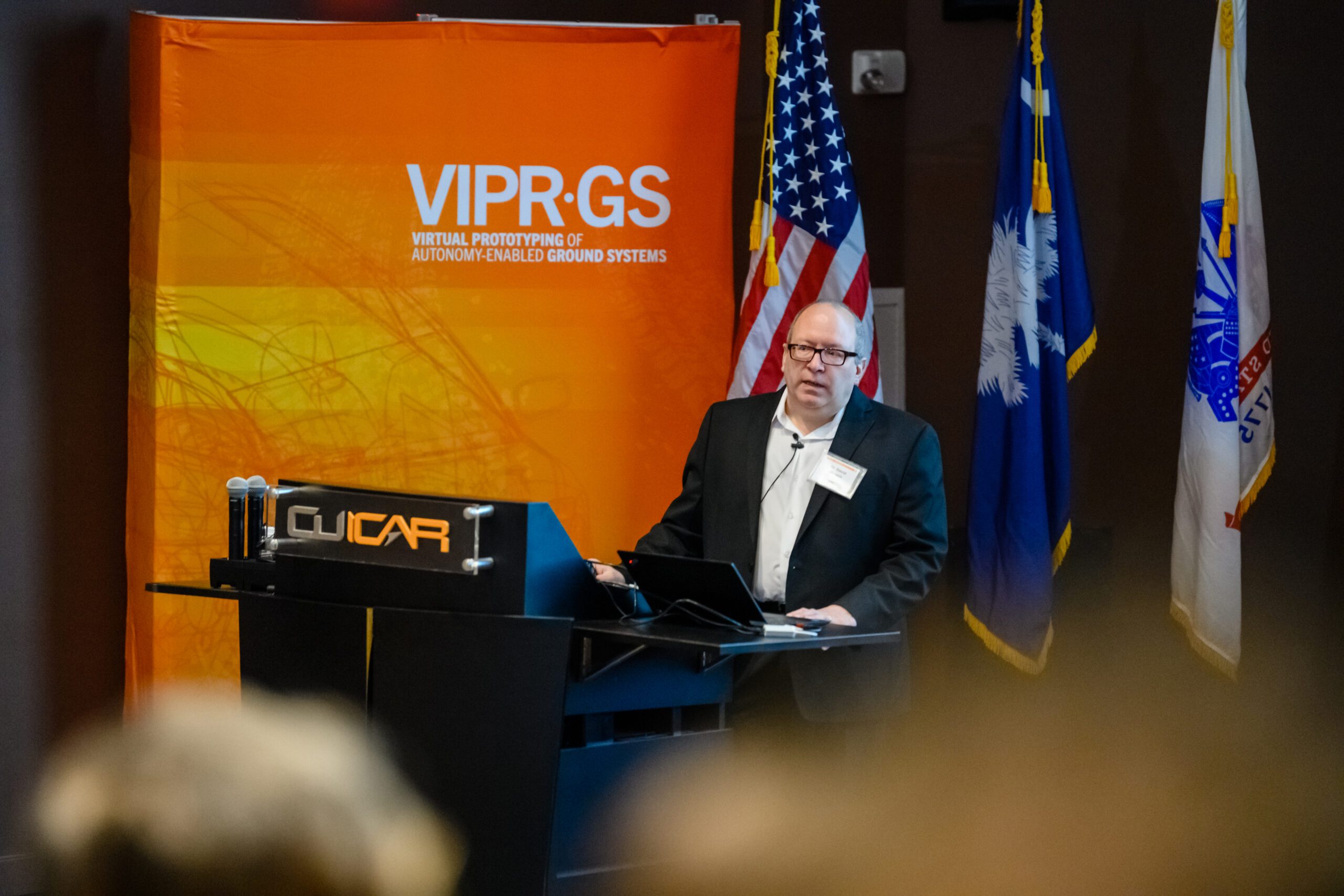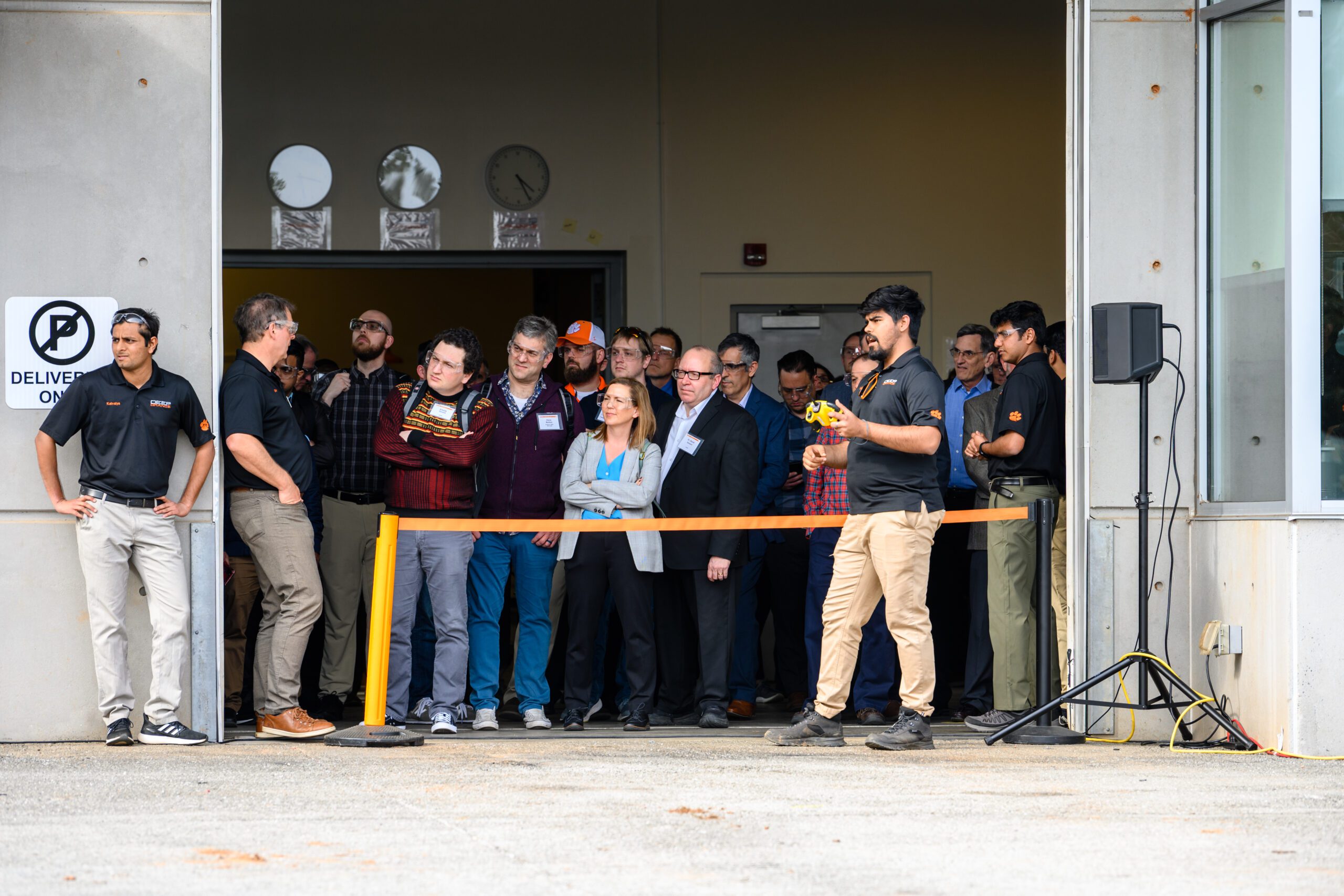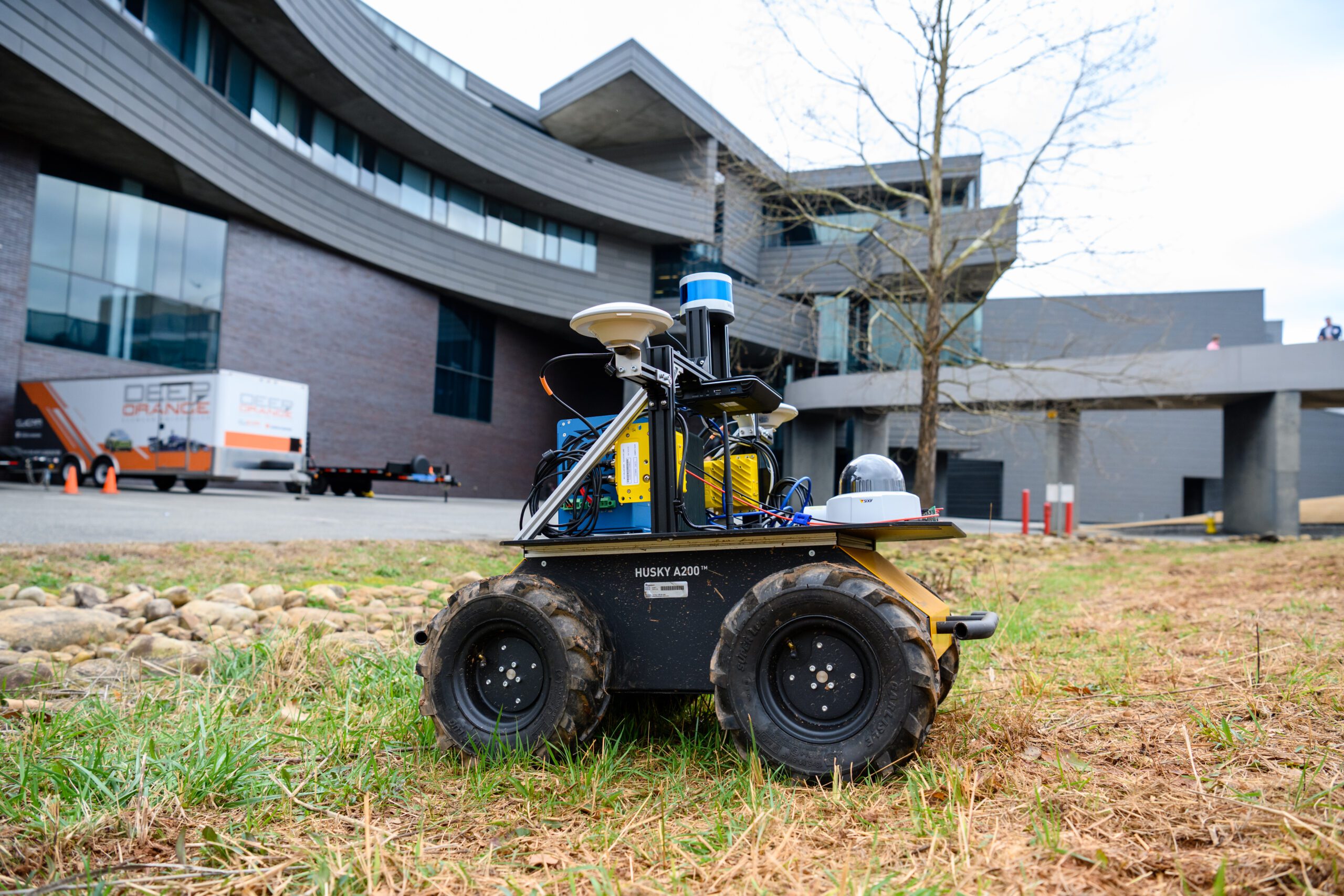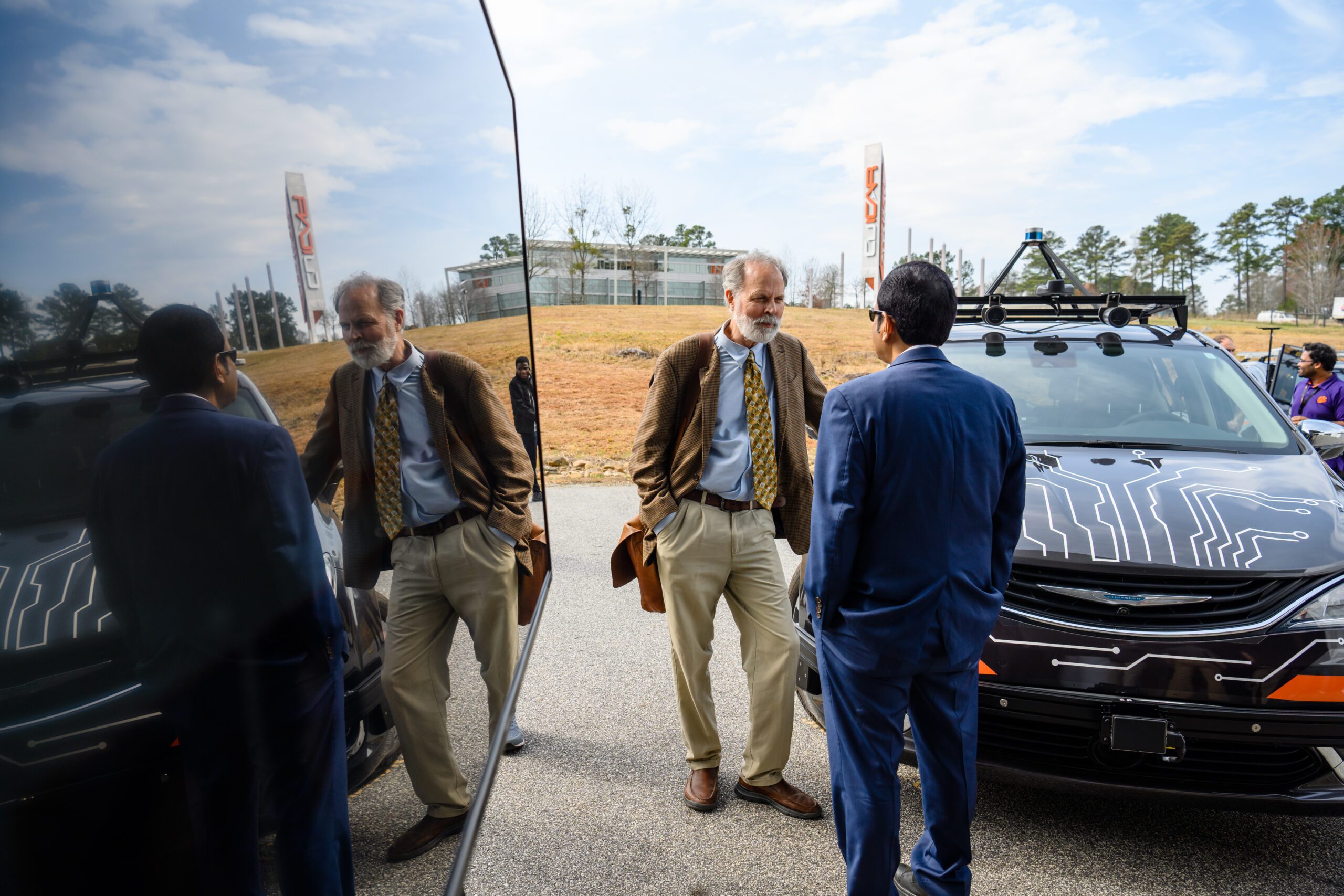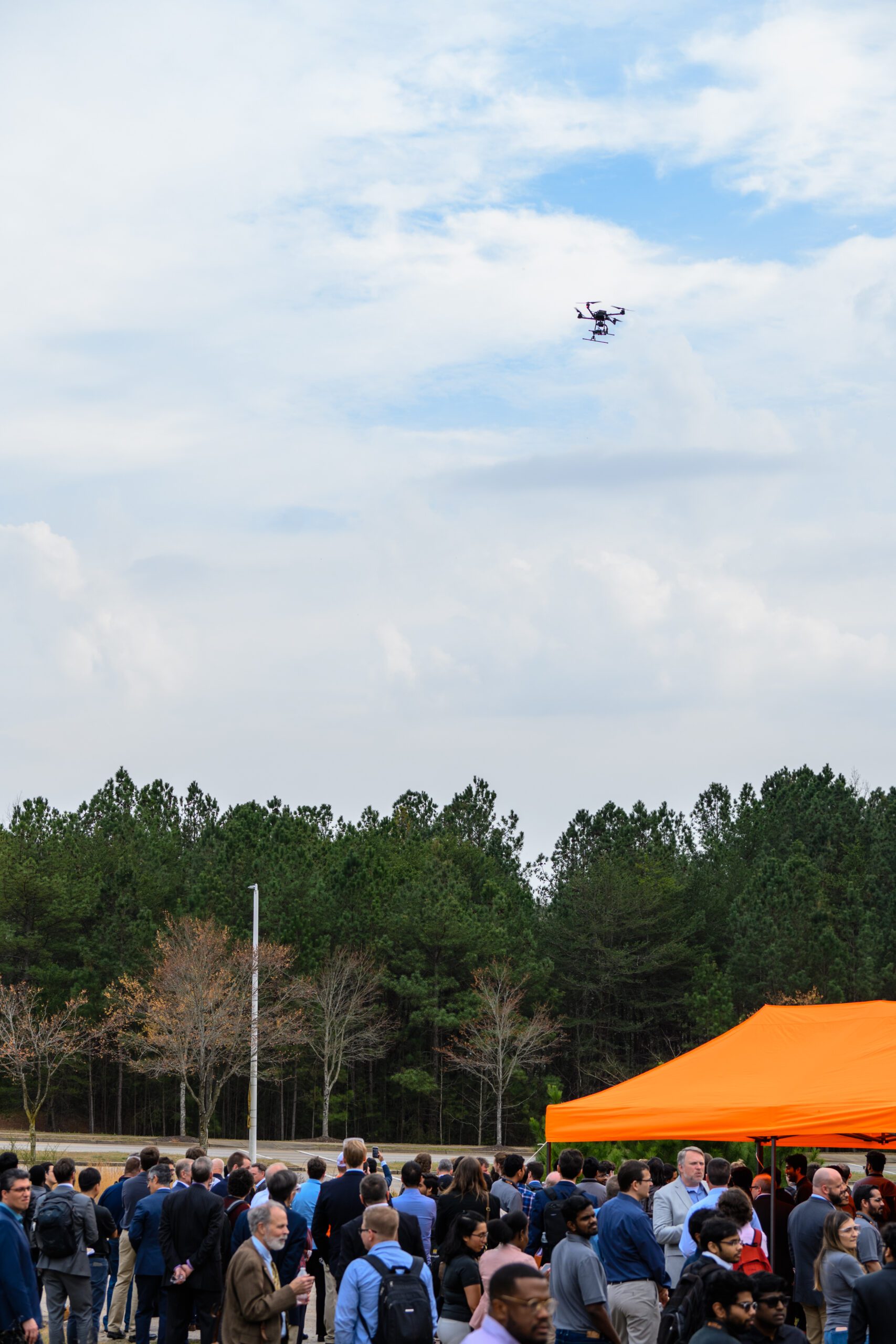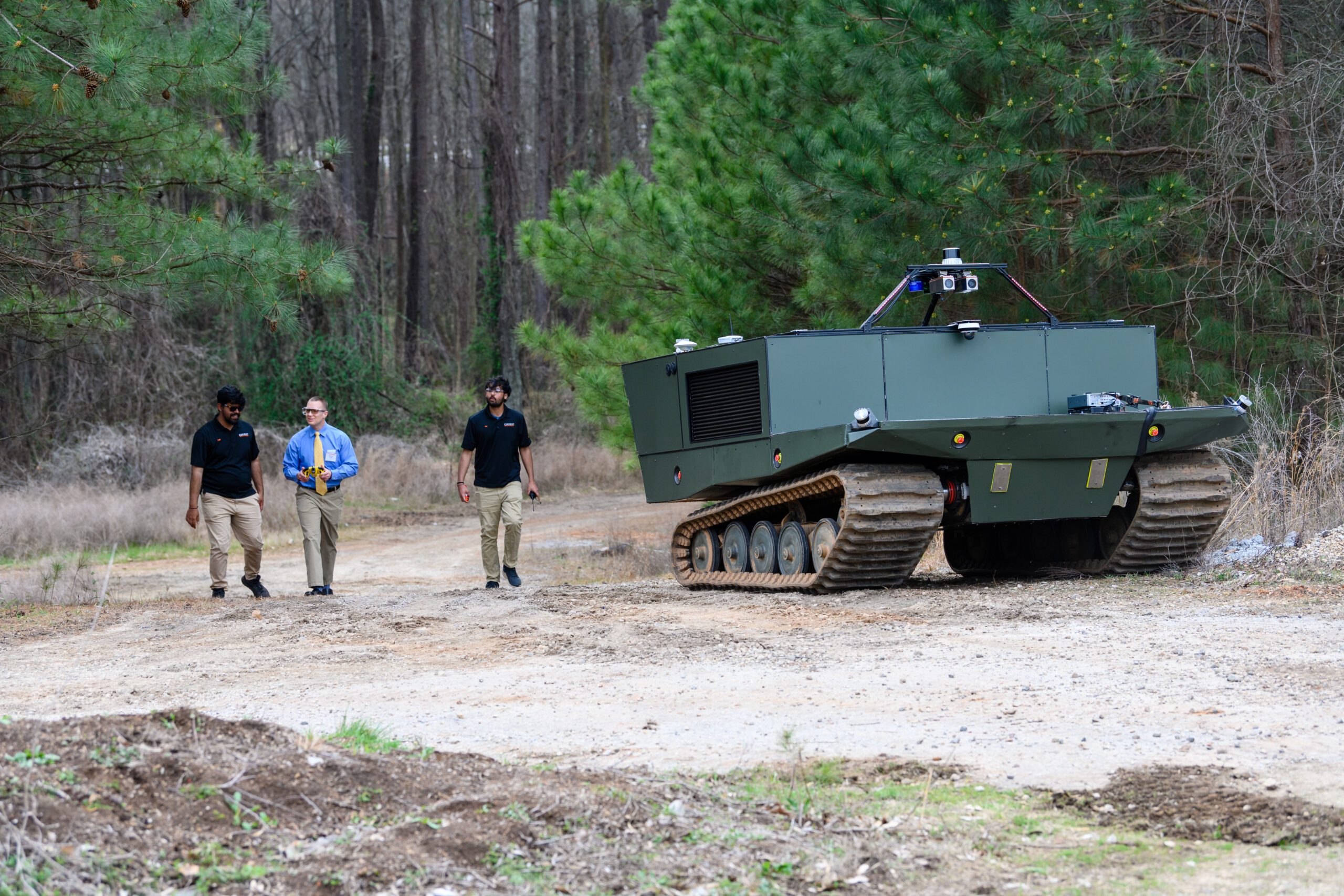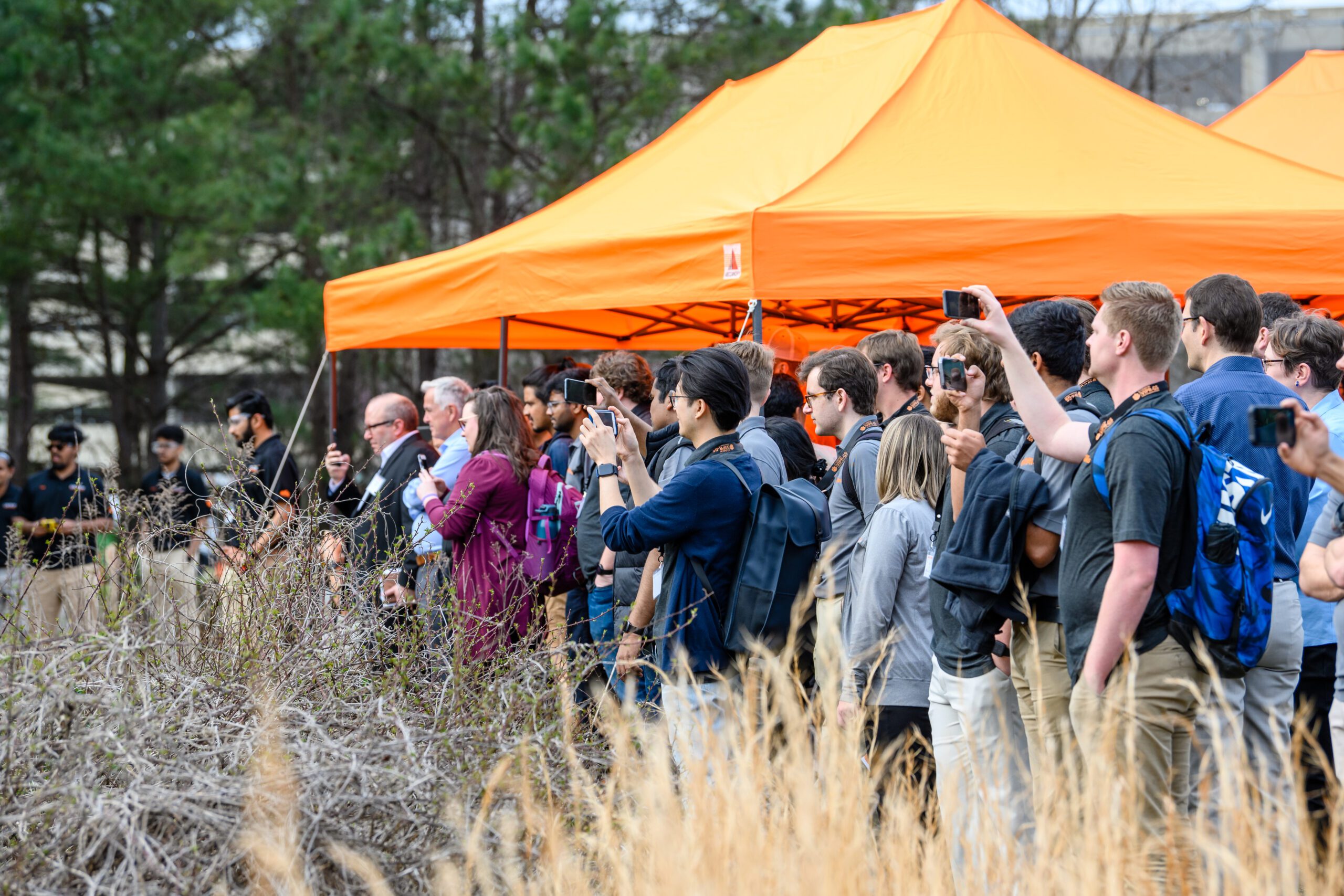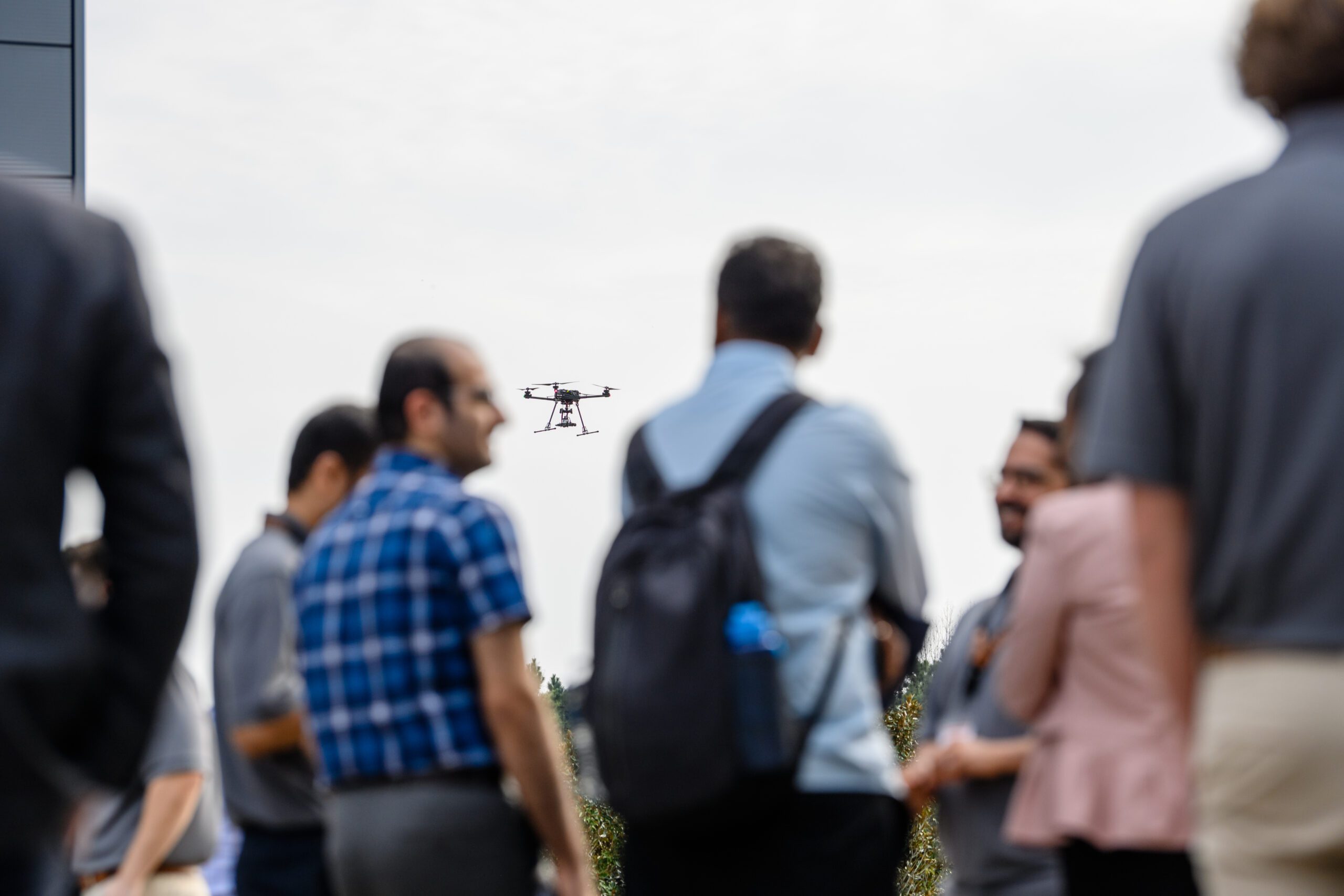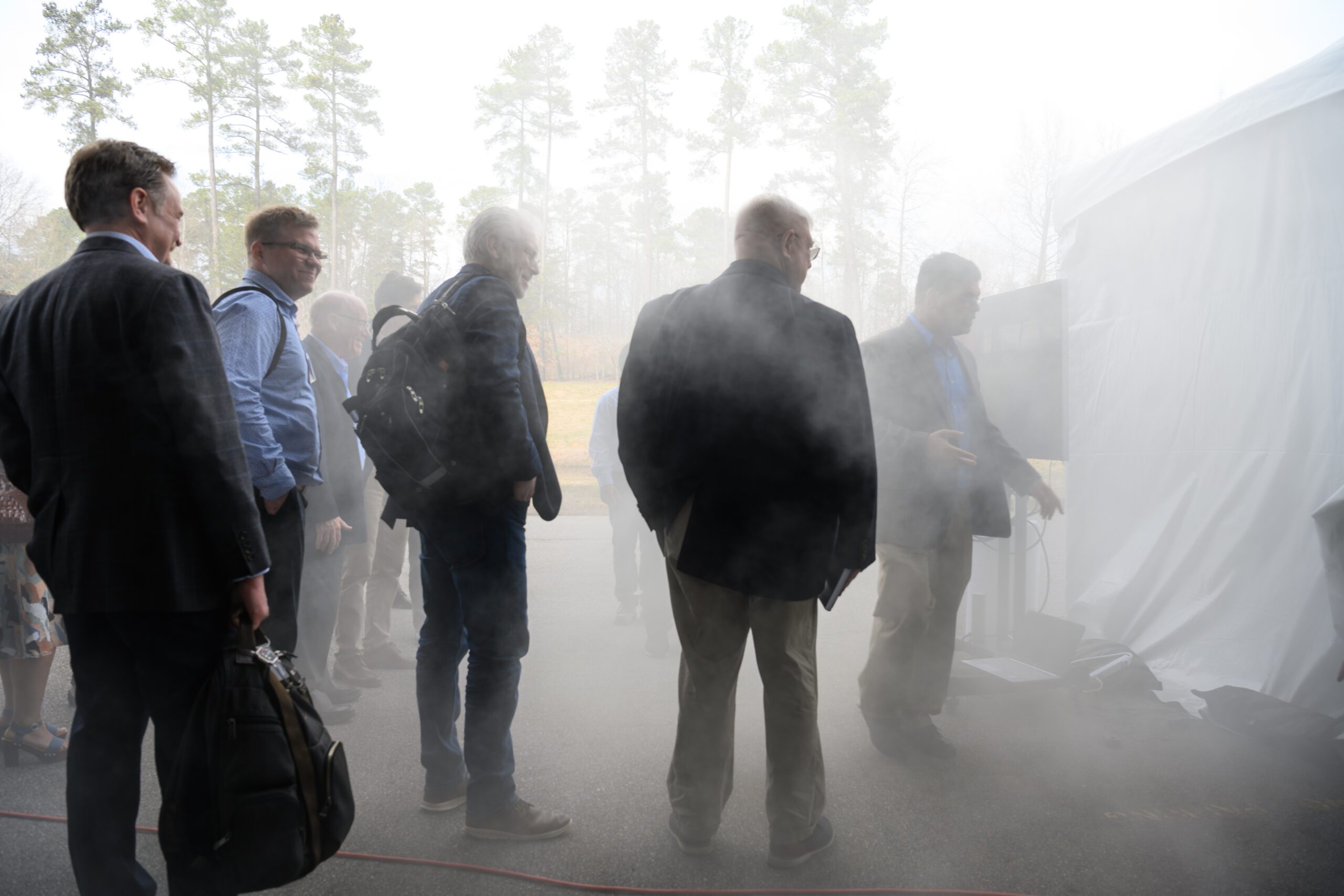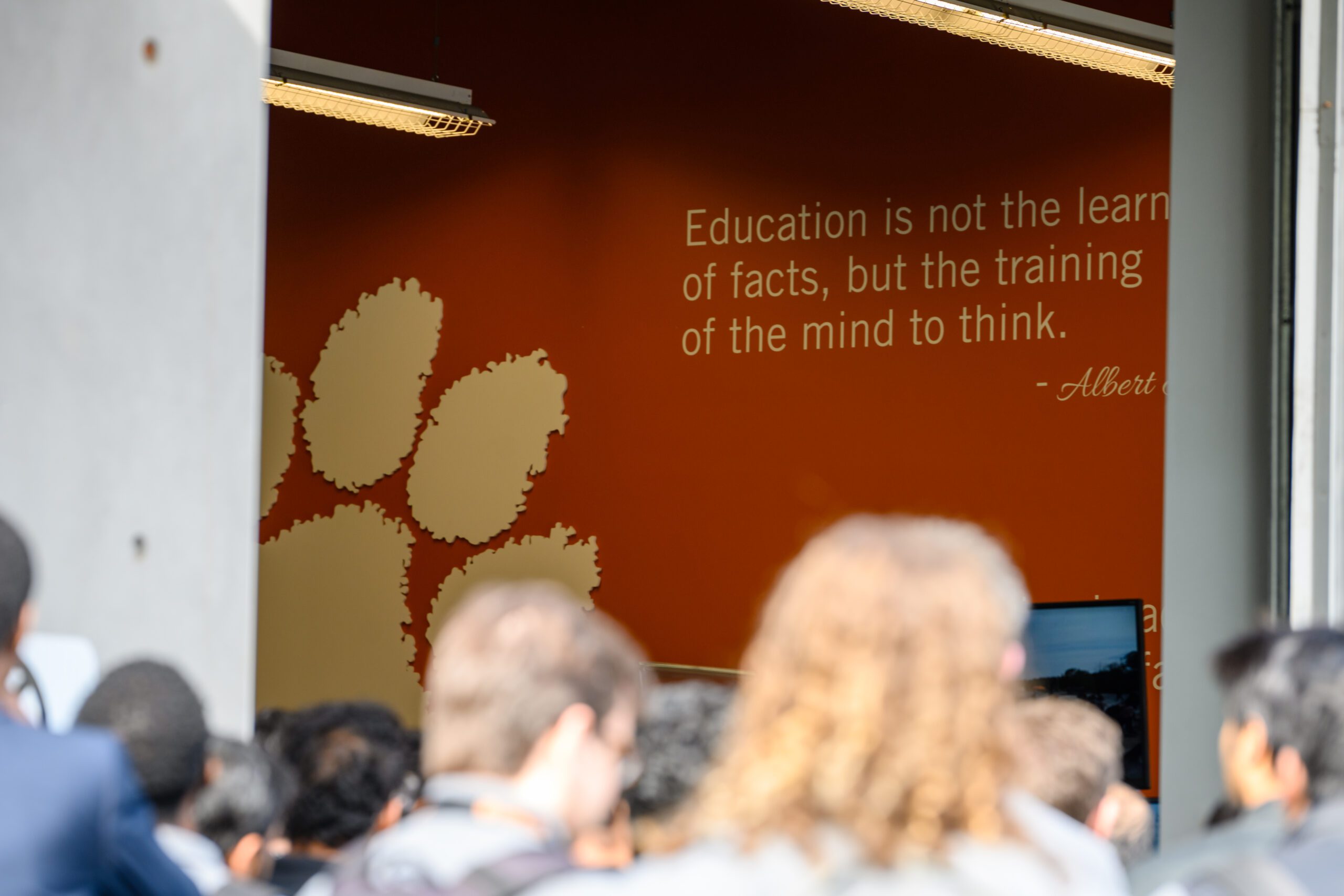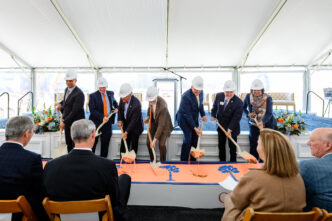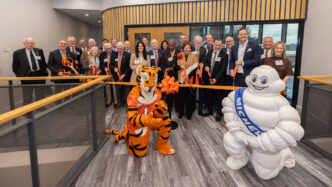VIPR-GS Annual Review highlights advances, working prototypes out of $58M center
Last week, Clemson researchers realized a crucial milestone for the University’s $58M landmark virtual prototyping research center with a two-day technology review for the United States Army DEVCOM Ground Vehicle Systems Center (GVSC).
Announced in 2020 and expanded in 2022, Clemson’s partnership with GVSC created the Virtual Prototyping of autonomy-enabled Grounds Systems (VIPR-GS) Center to develop innovative digital engineering tools for rapid exploration and design of the next generation of on- and off-road vehicles. These tools aim to support of GVSC’s ambitious goals for rapid modernization of U.S. Army fleets.
As part of this partnership, the center’s faculty and students hosted GVSC leadership to review latest developments, innovations, and research accomplishments to support the center’s mission. VIPR-GS consists of 70 faculty, 120 graduate researchers, 30 active translational research projects and 10 supporting departments. The review took place at the Clemson University International Center for Automotive Research (CU-ICAR) campus in Greenville, South Carolina.
“Virtual prototyping is the most direct path to quickly, economically, and effectively deploy autonomous vehicles in the field. The work Dr. Filipi and the Clemson VIPR-GS team are doing contribute directly to developing those tools and technology roadmaps for adoption of autonomy and advanced vehicle propulsion.
David Gorsich, U.S. Army Chief Scientist at GVSC
The updates, progress, and demonstrations we reviewed last week at CU-ICAR are exactly the type of insights we were looking for when we partnered with Clemson. The students coming out of the center are top notch and highly sought after.”
The two-day event featured technology demonstrations both in and outside labs at Clemson’s International Center for Automotive Research (CU-ICAR) campus, including an off-road test of flagship program Deep Orange’s fully-functional 3-ton high-speed autonomous tracked vehicle. Each project presentation highlighted a key component of VIPR’s research focuses: Autonomy; Power and Electrification; and Digital Engineering.
Keynote and panel discussions converged on the value of public-private partnerships, featuring guests from Ford Motor Co., Michelin, GE Aviation, SAIC, and MathWorks, as well as mobility research leaders from Oak Ridge National Laboratory, Stevens Institute of Technology, University of Wisconsin-Madison, and University of Minnesota.
“I was impressed during the review to see so many of the army’s industry partners there seeking to collaborate and even learned one of our industry partners has just opened an office next to CU-ICAR with over a dozen of their employees to help serve the Army’s needs and draw from Clemson’s expertise and students.”
David Gorsich, U.S. Army Chief Scientist at GVSC
Clemson has long excelled at building industry partnerships to drive robust, game-changing innovation in the mobility industry. To support research translation across both public and private domains, VIPR-GS collaborates with companies to deliver mature research results that can accelerate progress towards the development of new technologies. Faster deployment of new technologies in turn benefits the Army by making advanced products available sooner.
“We were honored and excited to embark on this partnership with GVSC in 2020 because it’s exactly the type of high-impact, multi-disciplinary, ambitious research challenge we were built to address. Just a few years later, VIPR-GS is in full swing and delivering on that partnership.
Zoran Filipi, Clemson VIPR-GS Founding Director
The outcomes of tremendous work displayed this week by my colleagues from ten departments across two colleges and dedicated students include breakthroughs ready to be transitioned to GSVC teams, as well as tools, methodologies and demonstrations of high interest to industry folks. In short, top-notch research with high potential for translation, the kind you can only get from a powerhouse like Clemson.”

